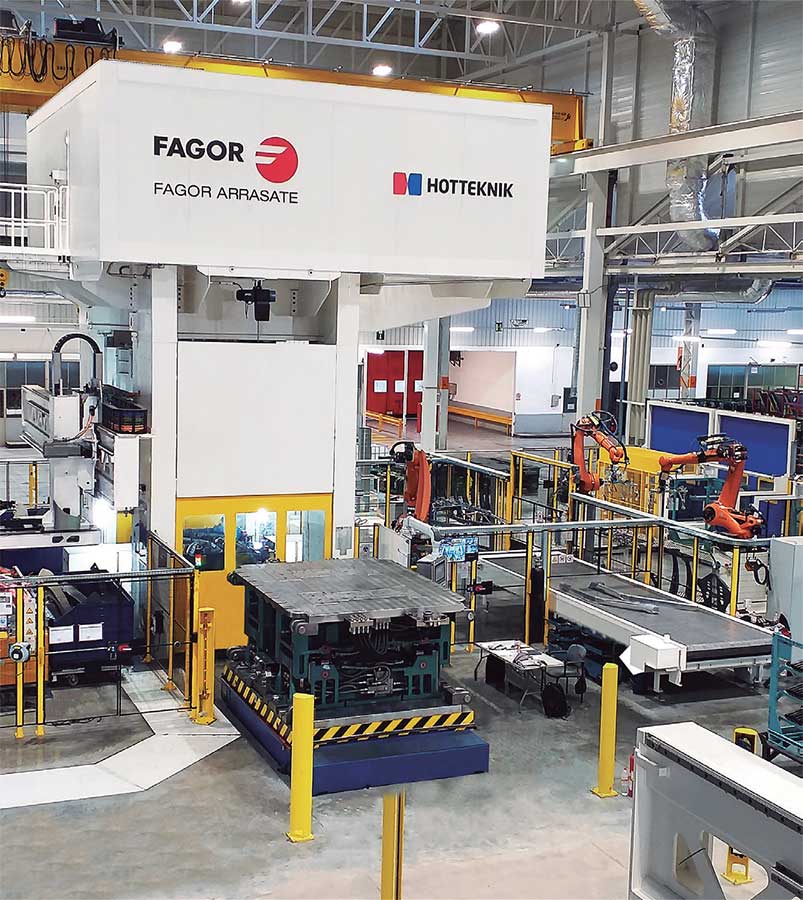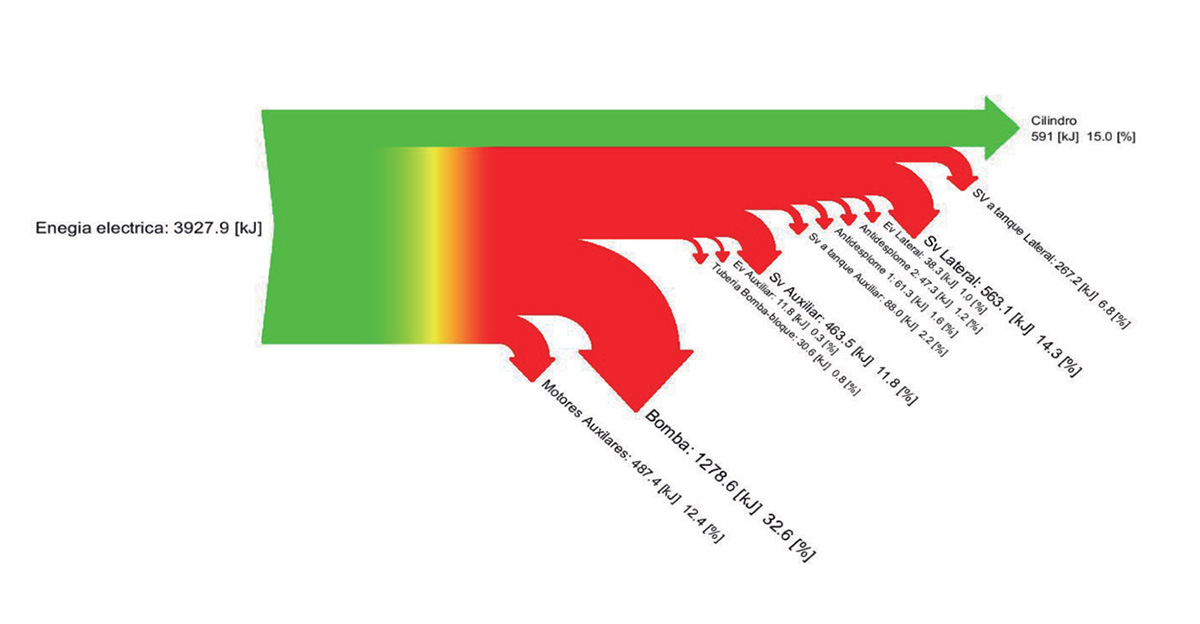REPUMP
ENERGY-EFFICIENT REMANUFACTURING OF HYDRAULIC PRESSES
FAGOR ARRASATE, PRODUCER OF FORMING LINES, together with the hydraulic equipment supplier, GLUAL, and IKERLAN, the Technological Centre specialised in advanced controls, have proposed REPUMP, a modular hydraulic drive not based on load loss that improves the energy efficiency of the hydraulic presses as well as advanced control necessary to achieve it. This new technology would improve the life cycle and end-of-life phases of presses and affect the design and production of new presses.

DRIVING FACTOR


 OBJECTIVES
OBJECTIVES
- Develop modular drives for hydraulic presses that improve energy efficiency by enabling their use in remanufacturing processes without losing dynamic performance.
- Extend the useful life of hydraulic press fleets, as improved energy efficiency would increase their competitiveness compared to presses without this technology.
- Extend the life of presses and reduce consumption of resulting materials.
- Offer new business models based on products and service systems which generally rely on predictive maintenance of hydraulic presses and in particular, on maintenance of new hydraulic modules.
 RESULTS
RESULTS
- Development of an Upgrading Package adapted to the characteristics of each press, focused on three main areas:
- Hydraulics package with new hydraulic cylinders and hydraulic systems.
- Control package, consisting of control logic and innovative control strategy. As the motor pump always exerts the maximum possible pressure, instead of the valve proportionally reducing the flow rate, the motor pump itself supplies the necessary flow rates to the hydraulic circuit at all times.
- Monitoring package: FA-Link is a data collection platform which collect, studies and analyses data from sensors and predefined parameters. This analysis enables us to know the condition of the press and whether it is operating properly at all times.
- Due to the implementation and taking into account the number of REPUMP presses that FAGOR ARRASATE can apply, 6,200 tons of CO2 can be saved in environmental impact, and energy effi ciency and extended useful life can be achieved by avoiding manufacturing new equipment.
 CONCLUSIONS
CONCLUSIONS
- Models based on service systems are more competitive and sustainable than producing new products as they allow for recurring revenues and end-of-life customer loyalty.
- Developing new remanufacturing methods is essential to achieve these business models because they retrofit obsolete products, improving their performance.
- In addition, remanufacturing and innovative control strategies can significantly improve energy efficiency of forming processes (around 40 %, according to previous studies), which is a strategic advantage in highly competitive global markets.
ENVIRONMENTAL
TECHNICAL
ECONOMIC
COMMERCIAL
ON THE MARKET



